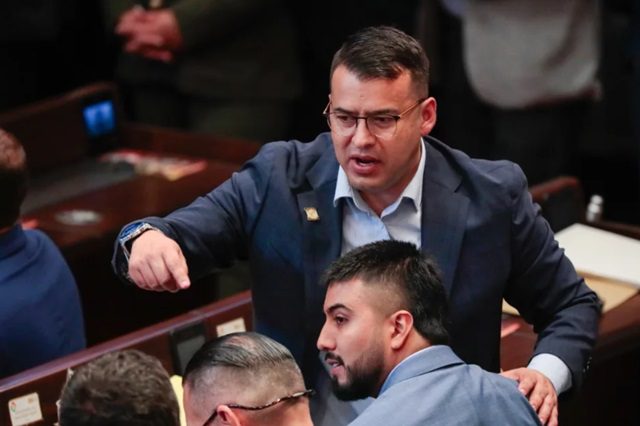BTN News: Efraín Cepeda Sarabia, a well-known leader from the Conservative Party, has been picked as the new president of the Colombian Senate. The vote happened on Saturday, bringing a big change to the country’s legislative leadership. At the same time, Jaime Salamanca, who is supported by President Gustavo Petro, has been made president of the Chamber of Representatives. This new leadership comes at a key moment for Colombia. The government faces many political challenges and aims to pass important reforms.
Cepeda is also the president of the Conservative Party. He got 97 votes from different parties in Congress. His election is notable because he has often criticized President Petro. The Senate shared the news of Cepeda’s win on social media, highlighting the wide support he received.
Cepeda thanked his colleagues for their trust. He said, “I want to thank the corporation for the confidence they have placed in me. They are entrusting me with this responsibility at a moment I consider decisive for the national life.” His words show how important his new role is and the high expectations that come with it.
The relationship between Cepeda and Petro’s government has been complicated. When Petro started his term two years ago, the Conservative Party was part of his coalition. But due to political problems, the Conservative Party and the Party of the U declared their independence from the government. Cepeda led this decision, criticizing some of Petro’s reforms.
This is not the first time Cepeda leads the Senate. He was the Senate president before, during the 2017-2018 legislative period. He brings a lot of experience to his new term.
Jaime Salamanca Elected as President of the Chamber of Representatives with Strong Support
In the Chamber of Representatives, Jaime Salamanca from the Green Alliance Party won with 114 votes. He beat Katherine Miranda, who got 69 votes. The results were shared on social media, confirming Salamanca’s new role for the 2024-2025 period.
Salamanca’s win shows he has the support of the executive branch. Interior Minister Juan Fernando Cristo and Laura Sarabia, the head of the Administrative Department of the Presidency and a close ally of President Petro, backed him. This support should help create a good working relationship between Congress and the Presidency, helping the government’s social projects move forward.
The new leaders in both the Senate and the Chamber of Representatives bring a new energy to Colombian politics. Cepeda’s critical view of Petro’s government and Salamanca’s support from the executive branch will create a mix of cooperation and opposition. This will likely shape the legislative scene in important ways.
As Colombia moves forward, people will watch Cepeda and Salamanca closely. Their actions and decisions will likely have a big impact on the country’s political and social path. Their leadership is key in facing the challenges Colombia has and in guiding the country towards stability and progress.


